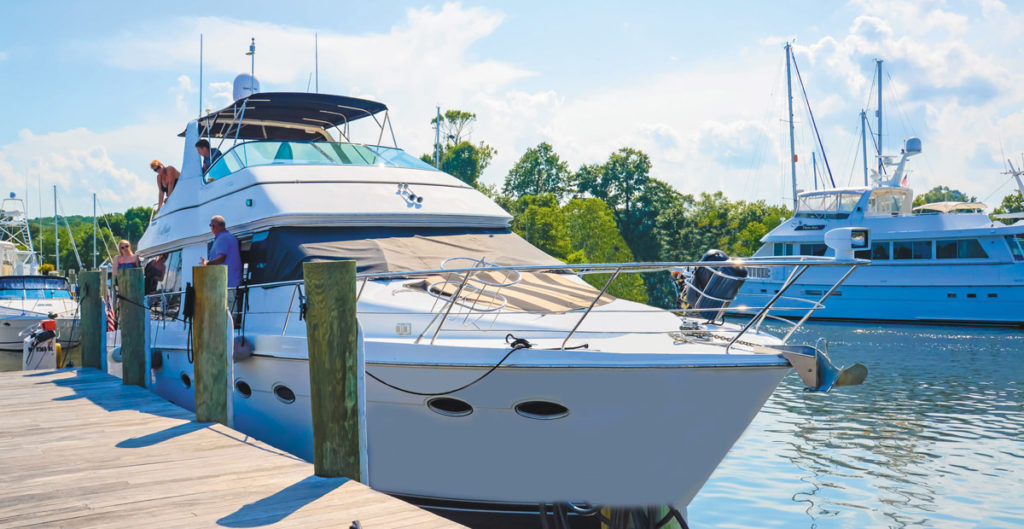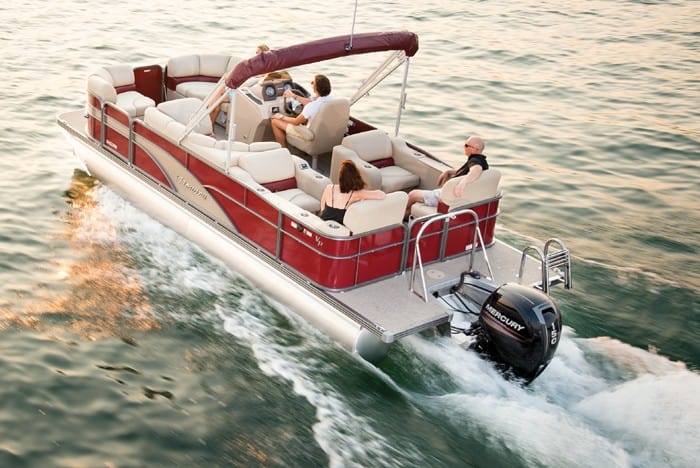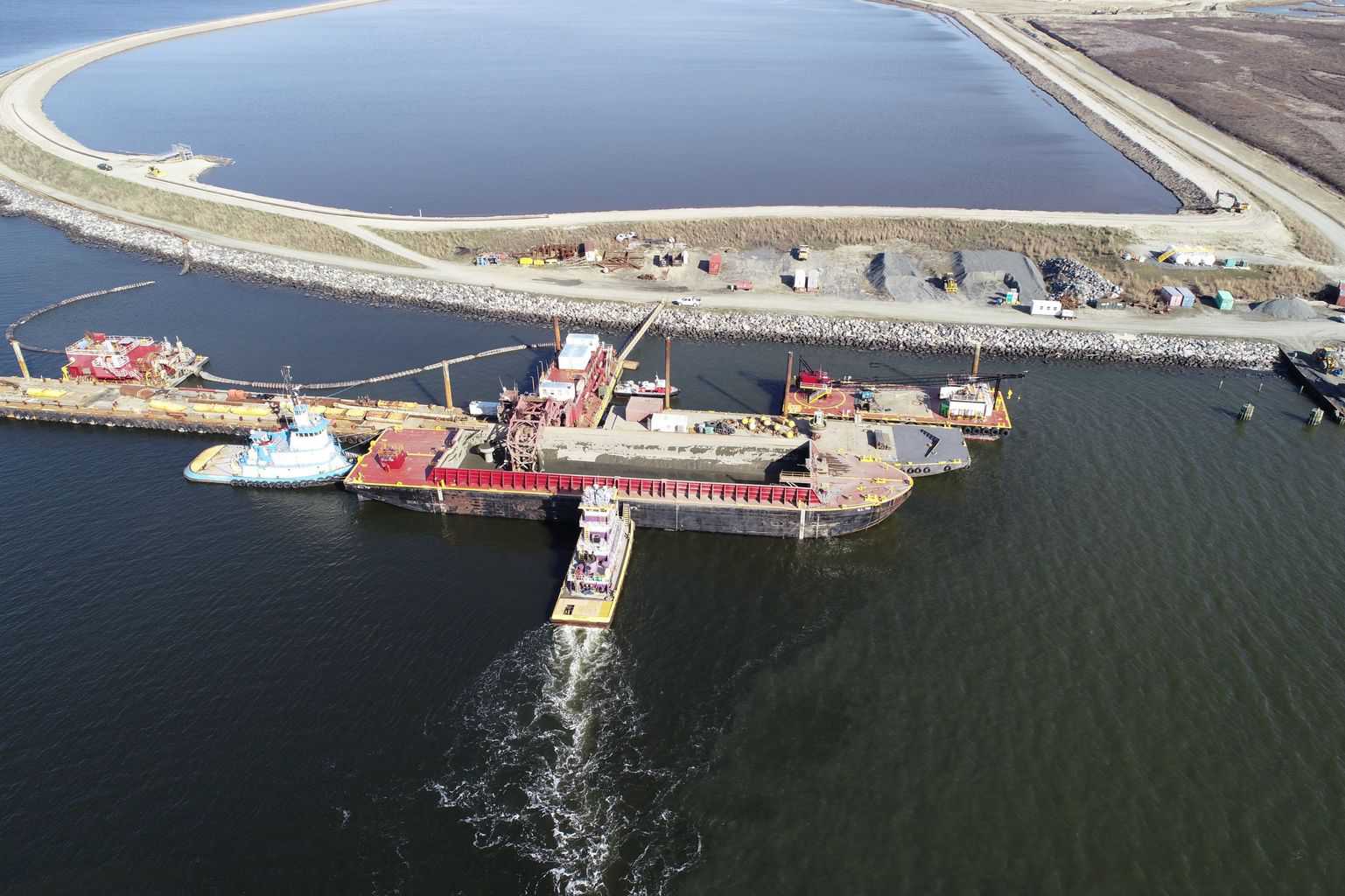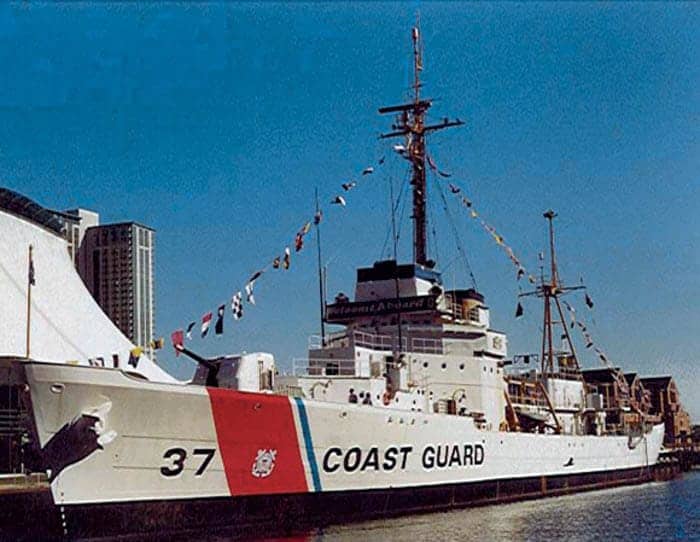On Friday, March 18, Maryland became the first state in the country to temporarily remove its tax on gasoline. Governor Larry Hogan signed emergency legislation declaring a 30-day gas tax holiday. Marylanders will save 36 cents per gallon on gasoline and roughly 37 cents per gallon for diesel fuel, though prices are still 60 cents more per gallon than just one month ago.
The measure has given drivers a small sigh of relief, but leaves boaters wondering what this season on the Bay will hold.
“The challenge for us in the boating industry is that the season has only just started,” says Susan Zellers, outgoing executive director of the Marine Trades Association of Maryland. “Most of our members haven’t even splashed their boats.”
Powerboats are generally put in the water with full tanks of gas, which leads to a big gamble as to whether or not it’s better to put in now or wait until closer to summer.
“We have clients who are talking about toning down their springs, and canceling trips until later in the season,” says Steve Macauley, Yacht Project Manager at Port Annapolis. “People are definitely taking gas prices into consideration when they’re figuring out what they’re doing.”
We spoke with one upper Bay marina manager who asked not to be identified about what they’re seeing on the docks. Slip rentals are down significantly, at about 60 percent capacity, and they believe it’s all due to the price of gasoline.
“Our average LOA here is 28 feet,” they said. “But a 28-foot boat can have a gas tank anywhere between 80 and 400 gallons, depending on the boat. That’s a hefty chunk of change.”
A boat owner in Annapolis who also asked not to be identified told us that he was waiting because of the size of his fuel tank. “My tank holds 400 gallons,” he said. “And gas is $1.50 more per gallon than it was last year at the same time. It’s hard to tell whether it’s best to wait and see, but considering how little I was planning on being in the water this April, I decided to hold off.”
While the issues of supply and demand are not significantly impacted for automobile gasoline, on the water it’s a different story. We spoke to several operators who mentioned concerns over bad gas getting into tanks if the demand for gas on the water is significantly less this year.
At Herrington Harbor South, fuel tanks are polished before the start of each season so that operators can trust that the fuel is clean when it gets into your boat.
“A fuel-filtering service comes down each winter,” says Tyler Rice, Harbormaster at Herrington Harbor South. “It’s something we’ve done historically and we believe it makes a real difference. They show us the before and after, and it’s a significant difference.”
Rice mentions that boats that have ethanol in their gas may want to pay attention to how long they keep their boats out of commission with fuel still in their tanks. “Ethanol attracts water, so if you’re ethanol-free, you don’t have to worry about it as much.”
Now is a great time for all boaters to become (more) fuel conscious. BoatUS Foundation offers a few smart tips on how to do this.
For one, an annual engine tune up can help you save money at the gas dock. An efficiently running vessel burns less gas than a rusty one. And on that note, make sure your propeller is tuned to your boat. The right prop can increase fuel efficiency by 10 percent, so it’s worth it to have a pro check yours out. While they’re there, have them look for any dings, dents, or barnacles. A clean ride is a smooth ride.
Also, think about how much water you’re carrying. Water weighs eight pounds per gallon. If your water tanks can hold 100 gallons, you’re carrying around significant extra cargo.
For boaters who like having the full picture when they’re operating, installing a fuel flow meter can help you gauge when you’re operating at highest efficiency.
And more than anything, avoid excess idling. It’s a common misconception that engines need time to warm up. Modern engines are fuel injected, so when you start them, they’re ready to go in a minute or two.
-Duffy Perkins




